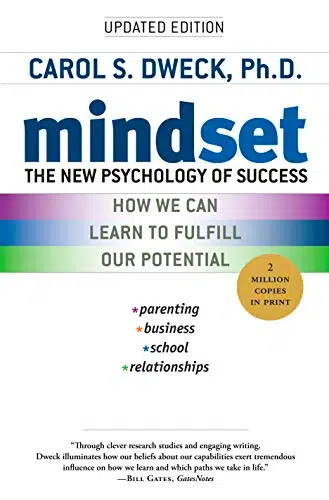Hans Meeder, Sr. Fellow for Innovation, YouScience
This summer, I’ve been re-reading Mindset by Dr. Carol Dzweck, and talking about it in the Leadership 360 talk I’ve been presenting to different audiences.
Knowing ABOUT this book and READING it are two different things.
For several years, I had heard about the concept of a Growth Mindset vs. a Fixed Mindset and the many implications these mindsets have on the way that we live our lives.
Intellectually, I believed in the notion of a Growth Mindset. I believe that each of us has natural endowments (at YouScience we call them aptitudes). And while there may be some limit on how far our natural aptitudes can be developed, there’s really no way to tell, especially early on in our lives.
Further, humans are much more likely to put limits on our own potential and the potential of others, than encourage hard work and focused efforts toward growing our potential.
Dweck lays out her findings from research and shares multiple stories of individuals that demonstrate a Growth Mindset. This mindset fosters a belief in the value of hard work, focused attention, and a positive way of thinking about set-backs. Thus, it allows people to often grow their aptitudes and develop their skills FAR beyond what their peers, advisors or parents told them.

| Fixed Mindset | Growth Mindset | |
| Beliefs | Intelligence and abilities are fixed | Intelligence and abilities can be developed through effort and learning |
| Challenges | Avoids challenges and risks | Embraces challenges and sees them as opportunities for growth |
| Effort | Views effort as a sign of weakness | Recognizes effort as the path to mastery and success |
| Feedback | Ignores or rejects constructive criticism | Welcomes feedback and uses it to improve |
| Success | Sees others’ success as a threat | Celebrates and learns from others’ success |
| Failure | Takes failures personally | Uses failures as learning experiences |
| Obstacles | Gives up easily in the face of obstacles | Persists in the face of obstacles and finds alternative solutions |
| Learning | Avoids learning outside of comfort zone | Constantly seeks new knowledge and challenges |
| Outcome | Focuses on immediate results | Focuses on long-term growth and development |
| Potential | Believes abilities are limited | Believes abilities can be developed to their full potential |

